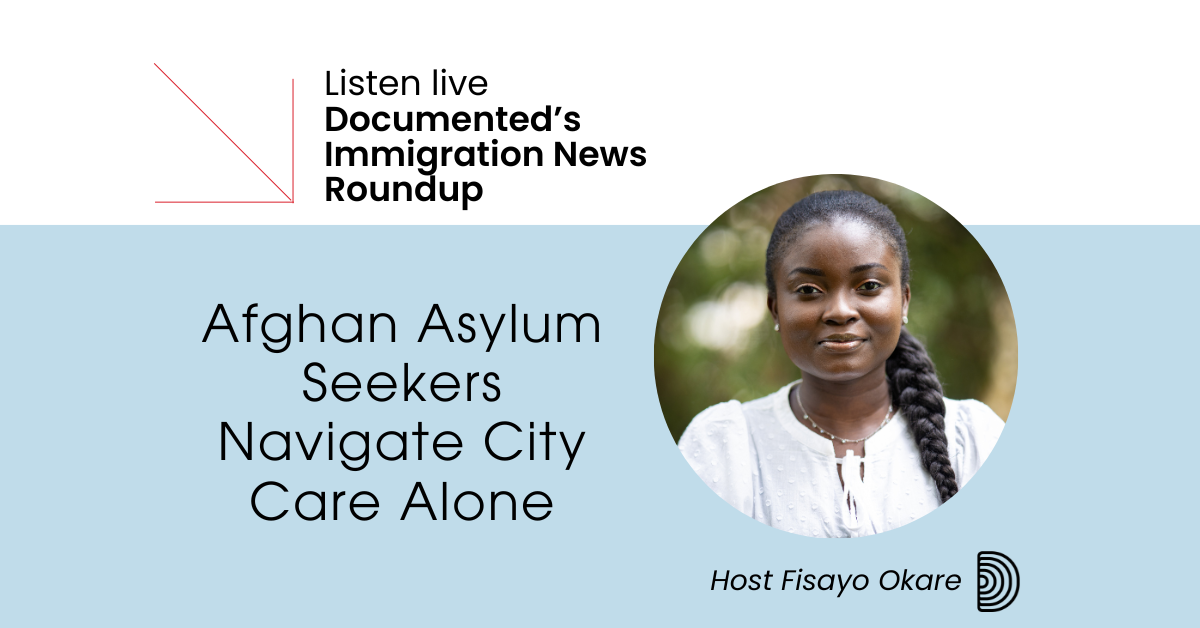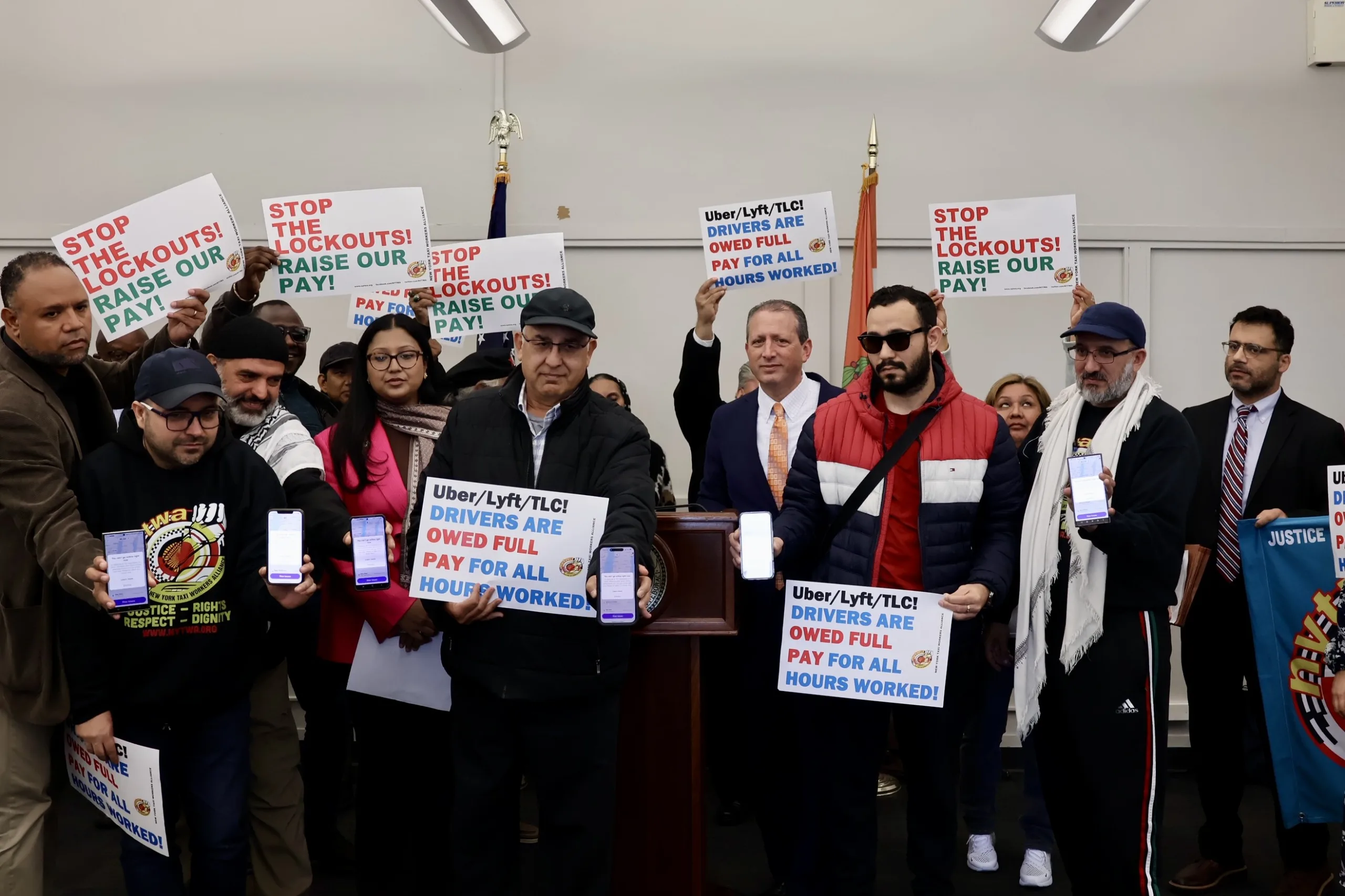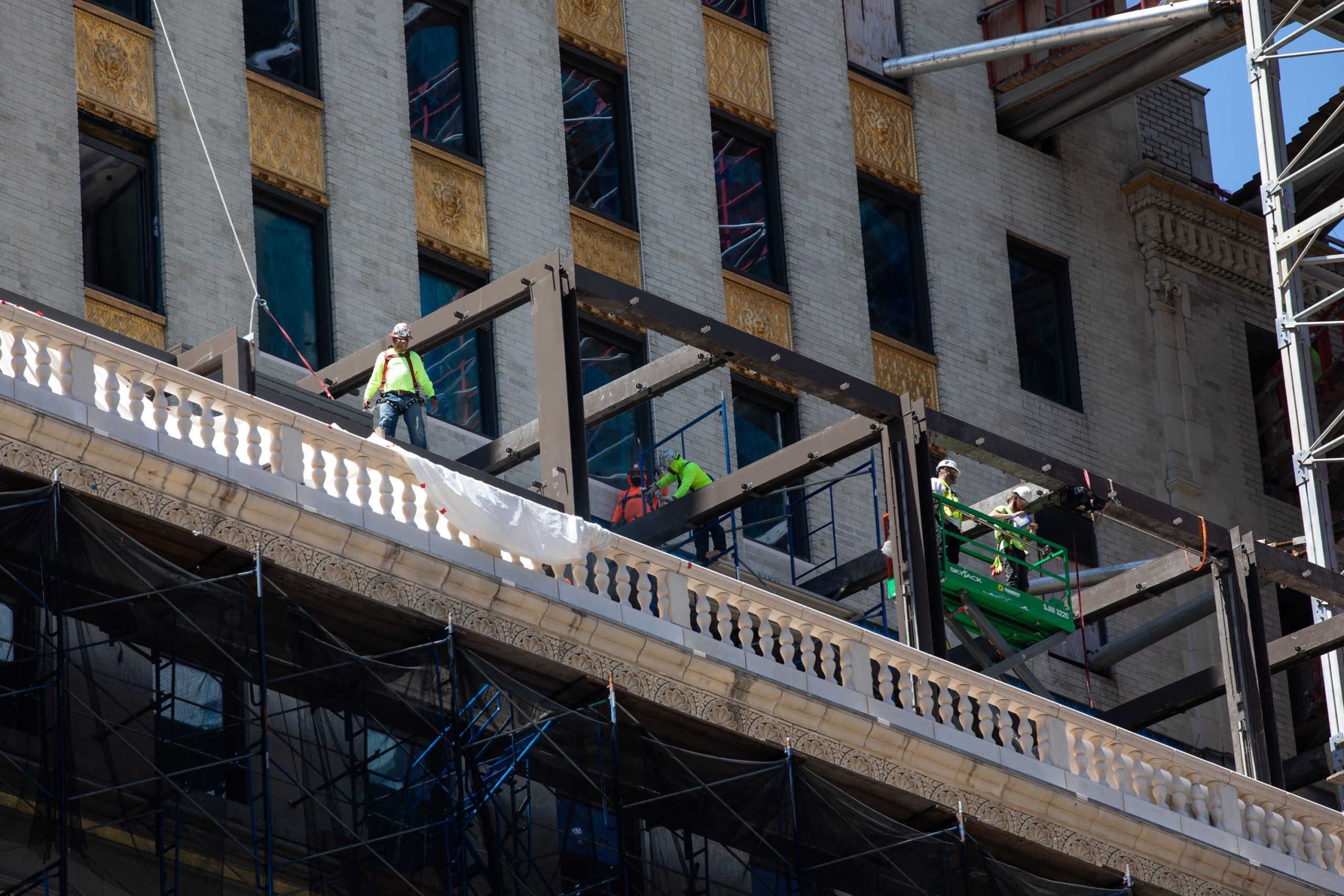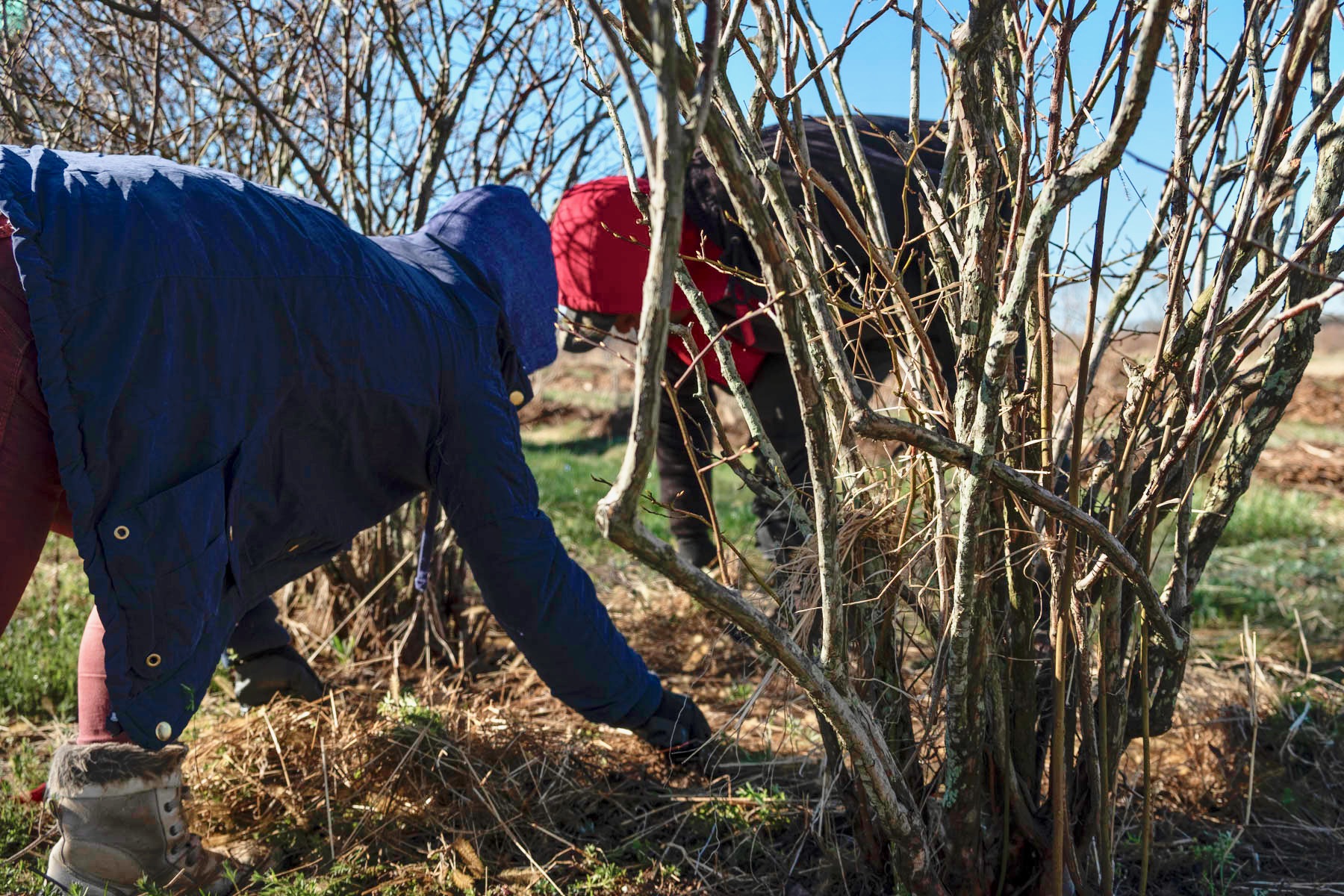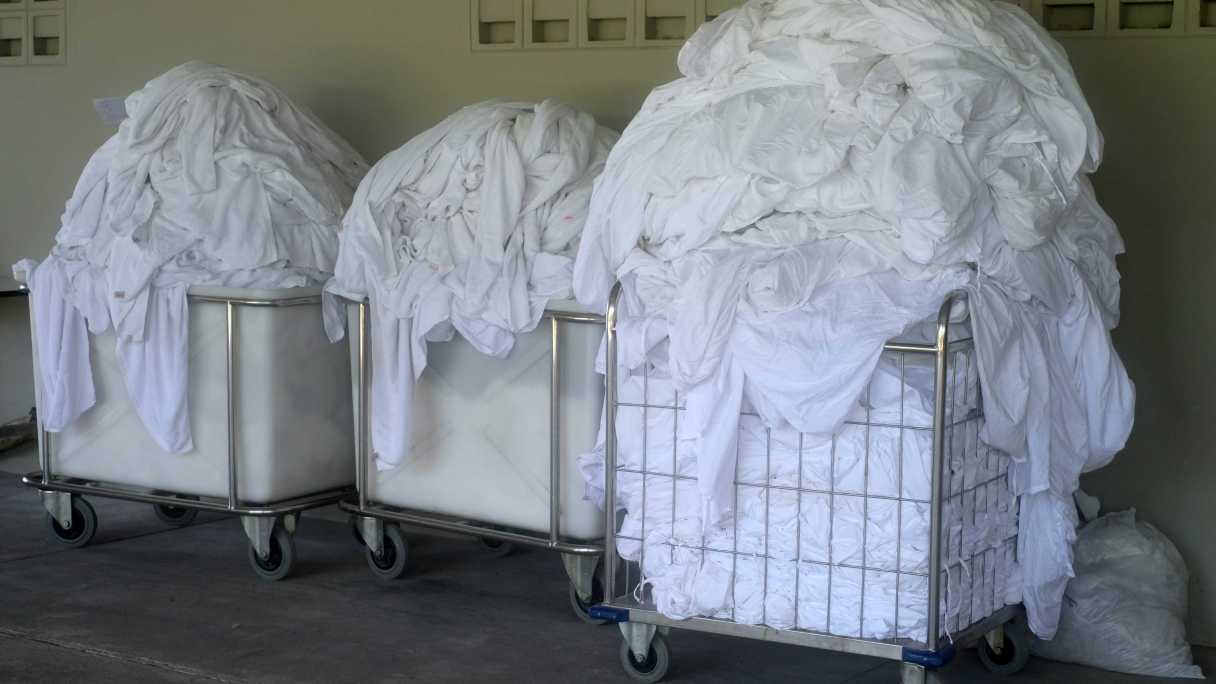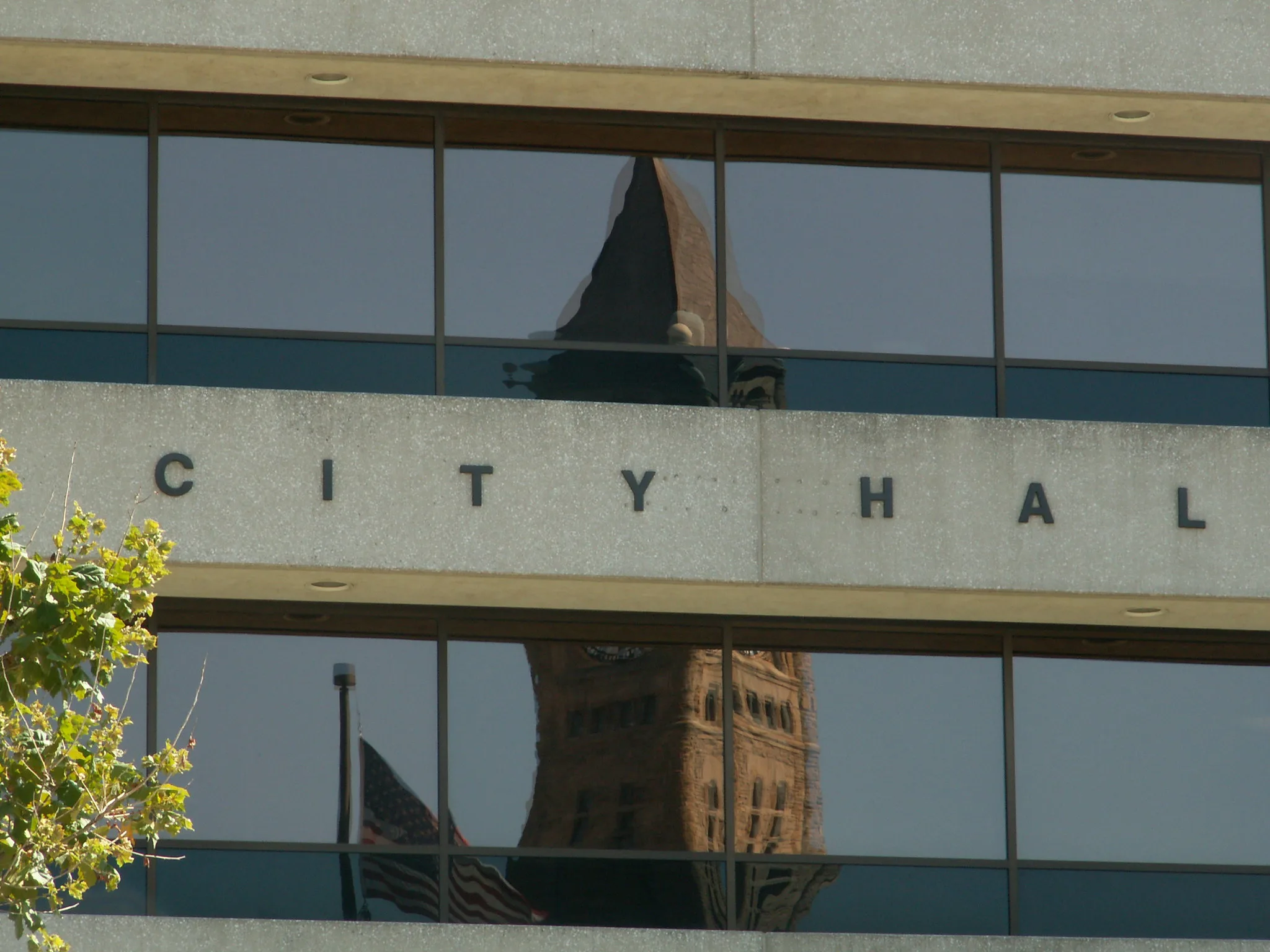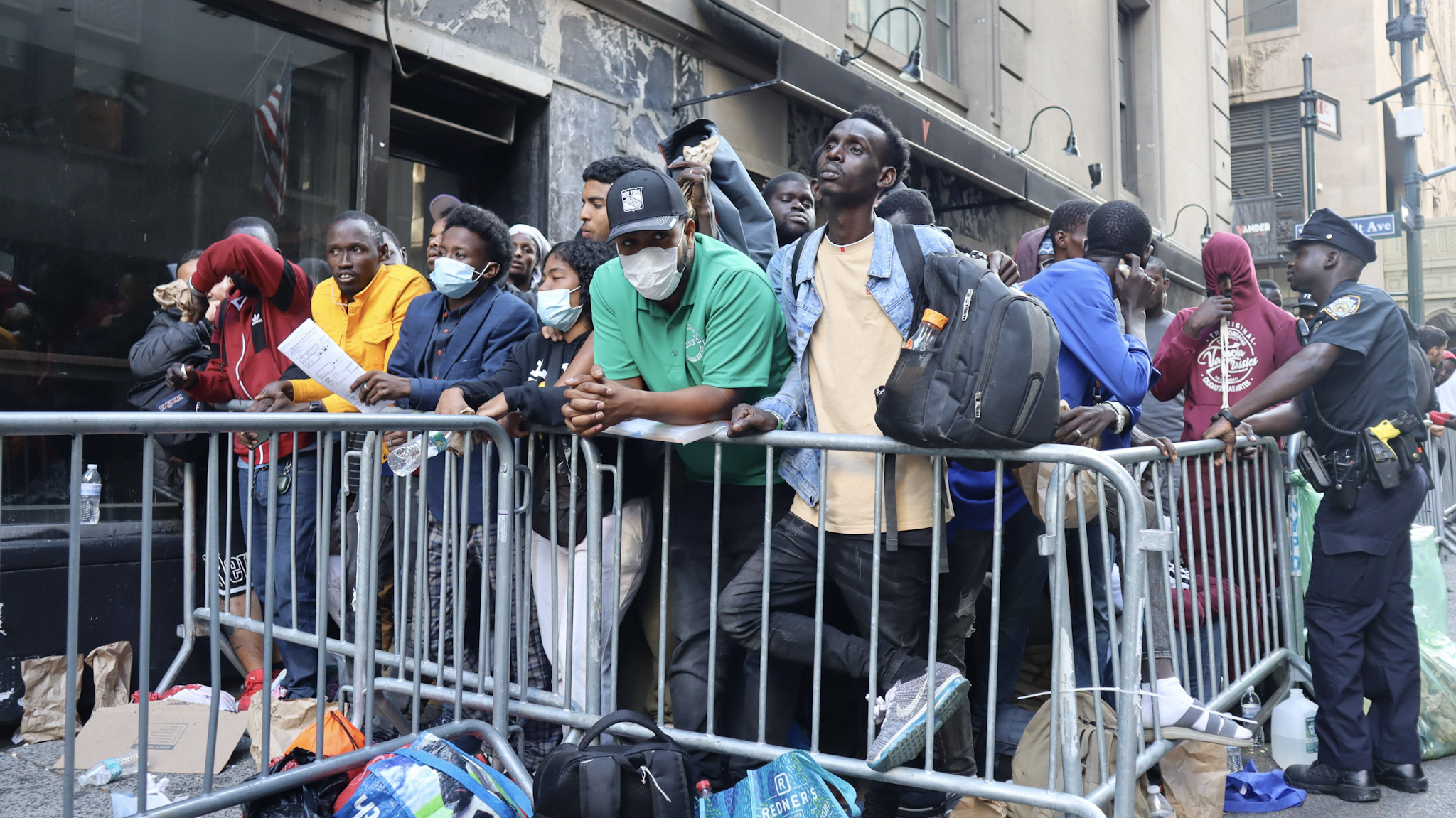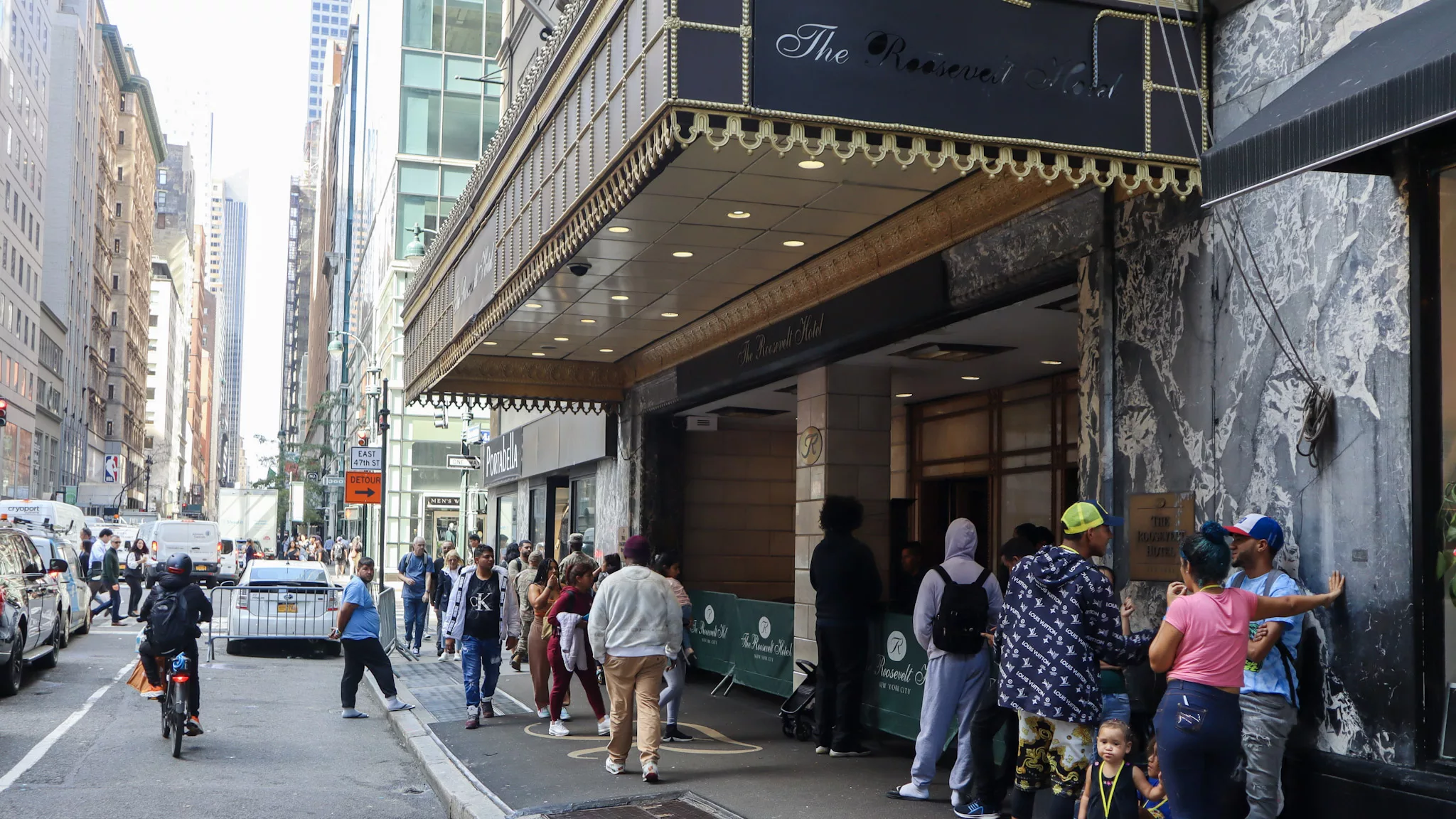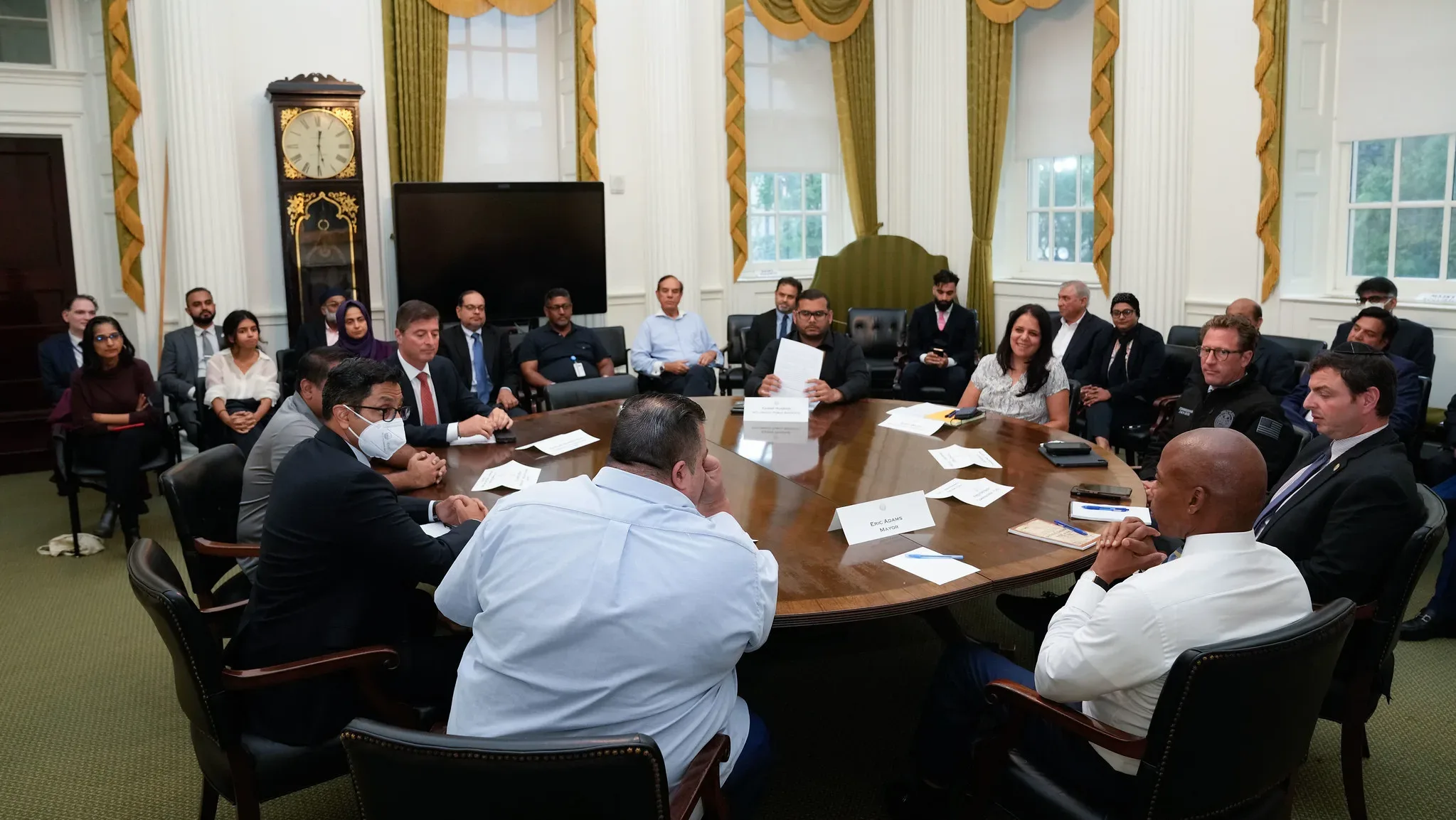Newly arrived Afghan asylum seekers are overcoming obstacles navigating city care with, “absolutely no help,” say advocates and Afghans in a new report from Documented’s Immigration Enforcement reporter, Giulia McDonnell Nieto del Rio.
She unpacks her reporting with Documented’s Host, Fisayo Okare.
We also hear from Arash Azizzada, the co-founder and co-director of Afghans For A Better Tomorrow (AFBT), and Halema Wali, another co-founder of AFBT — a community advocacy organization founded during the spring of 2021, as the U.S. announced it would be withdrawing from Afghanistan.
Mentioned in today’s episode:
- City spending on out-of-town tickets for migrants — CityLimits
- Trump falsely claims migrant students are displacing other children — Chalkbeat
- Businesses are scrambling to find workers — Bloomberg
Documented’s Immigration News Roundup is hosted on WBAI Radio in New York City. The voiceover of the news briefing segment is by Documented’s Amir Khafagy. The show’s theme song is by Jingle Punks. Today’s episode ends with a feature song — Ahmad Zahir’s Laily Jan, which can be heard on the radio version of the show on WBAI— chosen by one of our interviewees, Halema Wali.
SHOW TRANSCRIPT:
Fisayo: Hello from Documented. I’m your host, Fisayo Okare, and this is your Immigration News Roundup. First, the headlines of the stories you’ll hear on today’s show.
Amir: City spending and out of town tickets for migrants outweighs immigrant offices funding. Former President Donald Trump falsely claimed this week that migrant students are displacing other children from New York City schools, Chalkbeat reports.
Meanwhile, businesses across America are scrambling to find workers, says a new report from Bloomberg.
Fisayo: And you will hear directly from the cofounders of Afghans For a Better Tomorrow and my colleague, Giulia McDonnell Nieto del Rio about Afghan asylum seekers who are traveling from Kabul through Brazil and making their way to New York after crossing the border into California.
Giulia: They’ve been, you know, scared of gender-based violence and Islamophobia in the shelter.
Arash: We would welcome such a thing if resources were provided and assistance was provided to us, and, for our people here in the city.
Halema: I think folks might have, like, that sort of American dream in their mind, where like, “if I go there, everything will be fine.” But like coming here, it’s like housing is an issue, getting food is an issue.
Fisayo: We’re ending today’s show with a feature song, which one of our interviewees, Halema Wali, from the main segment selected herself. The song is Ahmad Zahir’s Laily Jan. But before we go into that story, my colleague, Amir Khafagy, who is a documented labor reporter via Report for America, has the updates.
Amir: Hi, this is your immigration news briefing. City spending on out of town tickets for migrants outweighs immigrant offices funding, says a new report from City Limits. By the end of January, officials revealed that the city had worked out $7. 6 million on buying over 20, 000 plane or bus tickets to move immigrants from its shelters to places outside the five boroughs.
That’s three times more than what the city usually spends in a year for its two main offices that handle services for immigrant communities. The first round of City Council preliminary budget hearings for the fiscal year 2025 began this week. Still on the chopping block is a 10 percent cut to city spending on migrants.
Nearly two years since asylum seekers began arriving at the city shelters, Adams has said he is now transitioning into a stabilized state, although maintains that the city is still in crisis mode.
Mayor Eric Adams [abc7NY]: We’re now transitioning into a stabilized state, because this is going to be here for a while. So by doing that, we can renegotiate contracts.
We can look at long term planning. We are far from out of the woods, but we’re showing that we can manage this crisis if we watch how we spend and we manage the spending that we’re seeing in the city.
Amir: Former President Donald Trump falsely claimed this week that migrant students are displacing other children from New York City schools chalk beat reports.
In reality, the opposite of what President Trump said is the case. Schools in New York City have been dealing with a different issue in recent years, lots of empty desks. This school year, enrollment has seen a slight increase, partially due to more migrant students joining. However, it’s still around 9 percent lower than before the pandemic.
Education department officials have emphasized that increasing school enrollment is crucial to avoid budget cuts, mergers, and closures caused by low numbers of students. Meanwhile, businesses across America are scrambling to find workers, says a new report from Bloomberg. Businesses are making the same appeal they’ve made for years, allow more immigrants to enter the country, to alleviate a significant labor shortage and occupy positions that many Americans are not interested in, they say.
Bloomberg’s analysis says, Indeed, immigration may be one of the key reasons the U. S. avoided a recession as it emerged from the pandemic. And this is so because as migrants came to the southern border during COVID’s upheaval, the increase in migrant arrivals may have been a potential solution to a shortage that by the end of this decade could lead to close to two trillion dollars in unrealized economic output.
Major cities were filled with individuals eager to work and pursue their own version of the American dream. However, in 2024-America, things are not unfolding as anticipated. Many newcomers who qualify for work permits struggle to obtain them due to government bureaucracy. Business groups argue that the system is flawed and are intensifying their calls for reforms to facilitate the entry of more workers through legal channels.
Jay Timmons, CEO of the National Association of Manufacturers, emphasizes that, “quote, “you can’t have a conversation with any business owner that doesn’t revolve around the fact that they simply cannot find the skilled workforce they need.” However, their appeals. are falling on deaf ears in Washington, where lawmakers are instead scrambling to address inflamed anti immigrant sediments, Bloomberg reports.
Back to you, Fisayo, for our feature story.
Fisayo: Thank you, Amir. Now, to our main story of today. Newly arrived Afghan asylum seekers. Are overcoming obstacles, navigating city care with “absolutely no help.” This report is the latest from Documented’s immigration enforcement reporter, Giulia McDonnell Nieto del Rio, who will join us shortly.
She writes in her report that when Kabul fell to the Taliban in the summer of 2021, about 76, 000 Afghans were evacuated from the country and brought to the U S., with more than 2, 500 evacuees resettled in New York State. Hundreds of that group were resettled in the Albany area, where Afghans also leaned on each other for support as they began their lives in the U. S. Fast forward to 2024, a group of Afghans now arriving in New York City, some as recently as just over two weeks ago, largely constitutes a population who arrived in the U. S. through a different travel route than those Afghans who were previously evacuated or came to the U. S. with visas back in 2021. Of this new group, most did not enter the country under humanitarian parole or with special immigrant visas, and therefore have fewer resources available to them through federal funding. Here to further discuss this report is Documented’s immigration enforcement reporter Giulia McDonnell Nieto del Rio. Thank you for joining me today, Giulia.
Giulia: Thanks for having me, Fisayo.
Fisayo: What an insightful and illuminating report you have today about newly arrived Afghan asylum seekers in New York City. Reading this report, I could see common themes and similarities with the difficulties asylum seekers from other countries have said they are facing in the city, language barrier, and having to rely on other migrants who settled in the U. S. long before them for help. But your new report about the Afghan asylum seekers reads like a difficulty within a difficulty. Let’s get into the story. There are two Afghan sisters at the center of your story, Harry and Raha, who have only been in New York for slightly over two weeks.
Can you walk us through their experience at the Randalls Island Tent Shelter?
Giulia: Right. So Pari and Raha, I met them at an event at a mosque in Queens. And as you said, they’ve only been in New York for just over two weeks. And they were placed at the Randalls Island tent shelter when they arrived in New York.
And that has been hard for them. You know, it’s a big, big tent shelter with different kind of style of dormitories. But there are hundreds of people in each dormitories. The cots are just feet from each other. There are men and women in the same space together. And as they said, and as the story notes they’ve been, you know, scared of gender based violence and Islamophobia in the, in the shelter.
They’ve seen. Some violence among other shelter residents. And as to women who have traveled here alone without any other family they haven’t felt like it’s a safe place for them to really start their new lives in this country. So it’s been a difficult transition.
Fisayo: You mentioned that you met Pari and Raha at an event in Queens.
That’s the mosque in Queens where newly arrived Afghan asylum seekers connected with each other and with Afghans already living here. Can you describe what you saw there and how the events went?
Giulia: So a lot of community organizations that are led by Afghans who have already been in New York and Afghan Americans like Afghans for a Better Tomorrow have been putting together events and assistance, resource fairs, things of that nature, like the one I attended in the basement of a mosque in Queens.
And at this particular event the organizers, which were, it was the group Afghans for a Better Tomorrow you know, put together a really nice communal lunch for, for the Afghan asylum seekers who recently arrived. They had an intake table for legal assistance. They were giving out phones. They were also giving out bread, tea, dates and it was also just a place for a lot of these families to connect with each other and with other Afghans who are already living in New York City. They even had a craft table for the kids who were making bracelets, drawing, and putting stickers everywhere. So it was, you know, a really beautiful communal event.
But, you know, of course there were undertones of the challenges and difficulties that they were facing. many of these recently arrived. Asylum seekers were also facing but that’s why they were there, right, to get the assistance and support from many other Afghans who have been in the U. S. for a long time already.
Fisayo: And so like many asylum seekers who arrive in New York City, Afghan asylum seekers have also been submitting their claims for asylum. How has the number of Afghans with pending asylum cases in New York immigration, immigration courts grown over the past couple of years?
Giulia: So the number of asylum seekers Afghan asylum seekers in New York has grown significantly in the past few years. And we have this data from TRAC, which is the Transactional Records Access Clearinghouse at Syracuse University. And it shows us that in the 2022 fiscal year, there were only 38 pending asylum cases for Afghan nationals in New York immigration courts. But in the 2023 fiscal year that jumped more than 300 percent to 179 pending asylum cases for Afghan nationals. And actually as of December of 2023, 269 Afghans have pending asylum cases in New York immigration courts. So that really shows us that in the past several years, there have been more Afghan asylum seekers coming to the city and putting their claims in the cities and the states immigration courts.
Fisayo: When I was reading your report, I saw that you spoke to Mohamed, a man called Mohamed in the story, who described his trek through the Darien Gap. What is Mohamed’s current state of affairs in New York now? What is he currently doing? How’s his family? And, are they settled? Are they settled now or in shelters? And does he have a work permit?
Giulia: So Mohammed’s story is interesting because like a lot of, a lot of other Afghans who were not evacuated from Kabul during 2021 when the U. S. pulled out of Afghanistan he had to actually pass through 14 different countries to arrive to the U S. So his family flew to Brazil.
He has six children, a wife and a mother all together, there were nine of them. They flew to Brazil and then made the trek north on buses, on boats, and on foot. Eventually they crossed the US border into California and from there they made their way to New York. So they had a really long and traumatic journey, especially when they were crossing through the Darien Gap.
You know, he told me that he wasn’t expecting it to be so dangerous. And especially, you know, having six children; it was a really challenging experience. But now in New York, he’s been able to find this community of Afghans who have already been living here for years or decades longer, who have helped guide him, he said.
Afghans for a Better Tomorrow gave him a phone, which he said was very useful. A phone with Internet. And so he initially arrived and saw the Roosevelt Hotel shelter with his family. He arrived last May of 2023, stayed there for several months and then was transferred to a different shelter in lower Manhattan, where he is now.
And so for Mohammed, he’s experienced some of the challenges that other Afghan asylum seekers have said you know, that they have in the shelters. He actually speaks English. So the language barrier, you know, is not as challenging as it could be for other folks who maybe just speak Dari or Pashto.
But still you know, asylum seekers have told me that there’s… and advocates say there’s no halal food and a lot of the shelters or no culturally appropriate clothing or things of that nature that a lot of the families are looking for when, when they arrive. But for Mohammed specifically, he’s actually been able to enroll in an engineering program for immigrants at Cooper Union and he just received his work permit recently.
So he’s feeling positive about that. And yeah, things are looking upward for him for sure. And he hopes to find a job as an engineer. Hopefully soon. He was a civil engineer back in Afghanistan as well.
Fisayo: Nice. So Mohammed has made some progress in some regards. How about the two sisters, Pari and Raha?
Giulia: So Pari and Raha are still at Randall’s Island. For them, I think they’re still obviously in the beginning stages of starting their new life here. It’s only been a couple of weeks. They’re just starting to look for legal assistance and things of that nature. But, you know, they really dream of pursuing a career in the arts, especially photography, they said they liked.
So hopefully one day, they’ll be able to achieve that here. And they really want to be self sustaining and make their own money. So obviously, looking for a job that will help them do that is really important for them. Also said housing is a huge issue. You know, they hope not to stay in the shelter system for long, especially now that Randall’s Island because it’s been hard for them to focus on building their new life when, when they don’t feel safe in the place where they have to sleep.
So that’s some of what they shared with me.
Fisayo: And the events at the mosque you attended, as you said, was organized by Afghans for a Better Tomorrow, which is a community advocacy organization founded during the spring of 2021. Just as the U. S. announced, it will, it would be rejoined from Afghanistan. You spoke to two co-founders of the organization for your reports, Halema Wali and Arash Azizzada.
Let’s listen to what they said in your conversation with them.
Giulia: This is Giulia calling from Documented.
Hi, how are you? Good. How are you? Can you hear me? Okay. Yeah I can hear you. We could just chat a little bit about the work you’re doing, what you’re seeing.
Arash: Yeah we’re, we’re a really small organization. We’ve been building our footprint in the city. And part of why we’ve been doing that is because everyone told us no, you know, at first we were like, we, we cannot do this. We’re not built to do this. We’re still not built to do this, but we are doing it by, sure by necessity. Because everybody, we asked for help, said no. We’re trying to do… like on Sunday we hope to have some sort of like legal intake where we’ve already kind of done that with folks.
We’re making sure nobody falls through the crack, nobody’s missing their court dates. Everybody is able to at least, you know, find some level of represent… legal representation. I would say also the majority of the folks are at the shelter, but now. I think the number is decreasing and people are finding some level of housing somewhere else either in the city or around the city. Some people have moved to Albany.
Giulia: So have some of these folks been affected by the city shelter stay limits that are implemented now? Like the 30 and 60 day limits for single adults and families?
Arash: Yeah. Pretty much all. So either people are reapplying for shelter. Right. Yeah. Okay. All right.
Arash: But majority of people are being essentially forced out of it. You know, they realize that this is a horrible situation. This is the mayor’s cruel attempt to force people out of their shelter. We would welcome such a thing if resources were provided and assistance was provided to us for our people here in the city, for Afghans and other Muslim asylum seekers, but they’re essentially being told, Hey, you need to get out.
Fisayo: So that was Arash, the co founder and co director of Afghan for a better tomorrow in an interview with Giulia over the phone. Giulia also spoke to Halema Wali, another co founder of Afghans for a Better Tomorrow, who she met at the masjid in Queens, where she was attending to questions, translating in Dari and English. Here’s part of their conversation.
Halema: There’s a very real and tangible fear of, like, are we going to be on the streets? And I think the one thing that people are, are learning the very much the hard way is that New York City and I think U. S. in general is not a very flexible place in the sense that I think folks might have, like, that sort of American dream.
In their mind, we’re like, if I go there, everything will be fine. But like coming here, it’s like housing is an issue. Like getting food is an issue. Your legal status, like, so it’s just proved to be like way more obstacles than I think a lot of folks thought. I think the shelters are very well equipped for, let’s say, Spanish, for example, and some of the other more prominent languages in New York City, but definitely not for Dari and Pashto.
Giulia: Most of the folks who are here today speak Farsi?
Halema: I would say 80 percent or so, like 75% ish speak Farsi and then the others speak Pashto
Fisayo: So we’ve just heard Halema Wally and Arash Azizadah, co founders of Afghans for a Better Tomorrow, speaking. Thank you so much, Giulia, for joining me again. This was a very insightful conversation.
Giulia: Thank you so much for having me, Fisayo.
Fisayo: Giulia is Documented’s immigration enforcement reporter via Report for America. You can read her latest report about how newly arrived Afghan asylum seekers are overcoming obstacles navigating city care by going to docu.nyc/newafghan. You’ve been listening to Documented Immigration News Roundup.
We’re ending today’s show with a feature song, which one of our interviewees, Halema Wali from the main segment selected herself. Halema is one of the co founders of Afghans for a Better Tomorrow. The song is Ahmad Zahir’s Laily Jan.
Halema tells us it is one of her and her parents favorite. When Halema’s dad’s side of the family came to the U. S. several years ago, they settled in Brooklyn, walked out of there, saved up, and then eventually moved into the suburbs. To her parents, this song, Laily Jan, represents the golden era of Afghanistan, inspired by Elvis and other global sensations from the 70s.
To her, this song is the Song of Childhood. Her family will play this song during family parties, picnics, and other events.
If you didn’t know, Ahmad Zahir is considered the all time greatest singer of Afghanistan. To many, he is the Elvis of Afghanistan. You’ve been listening to Documented’s Immigration News Roundup. We have now come to the end of the show. For more news updates and resources for immigrants, go to docu.nyc.
Fisayo: You’ve been listening to Documented’s Immigration News Roundup I am Fisayo Okare. Don’t forget to tune in next week. Until next time. Thank you for listening.
